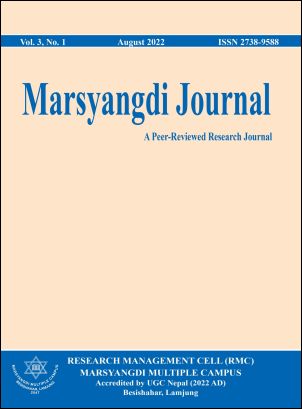EMI as a Form of Cultural Hegemony
DOI:
https://doi.org/10.3126/mj.v3i1.47950Keywords:
English hegemony, cultural minority, Socio-economic ideology, linguistic marginalisation multilingualismAbstract
This paper aims to provide critical analysis of the relevant literature, particularly focusing on how English as a Medium of Instruction has promoted cultural hegemony in the context of developing countries. The descriptive summary from the documentary analysis of recent literature helps to develop the argument on different themes. This paper reports that the current trend of adopting English as the medium of instruction is one of the forms of cultural hegemony as the government endorses EMI policy in the national curriculum focusing to develop English competence as the determiner of quality education, index of socioeconomic status and the foundation of students‟ career. Moreover, it indicates that EMI has served the elites to channelize their power and hegemony resulting the wider educational gaps, socio-economic inequality, marginalisation of the local languages, confusion in educational language policies, linguistic and cultural identity crisis and implementational challenges in theory and practice levels. It is significant to understand the practice and outcomes of EMI in the different educational settings in many multicultural countries including Nepal. The paper suggests developing critical discourses among the stakeholders, policymakers, educators and parents to create the appropriate model of multilingual pedagogy to prevent the English hegemony.




